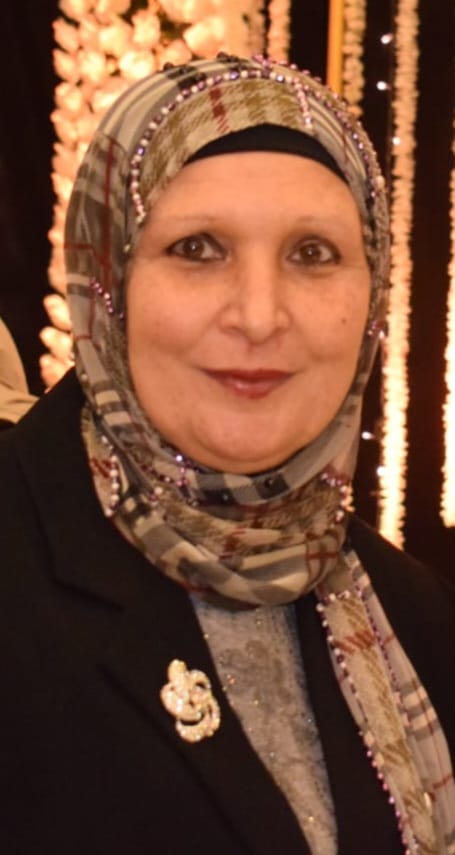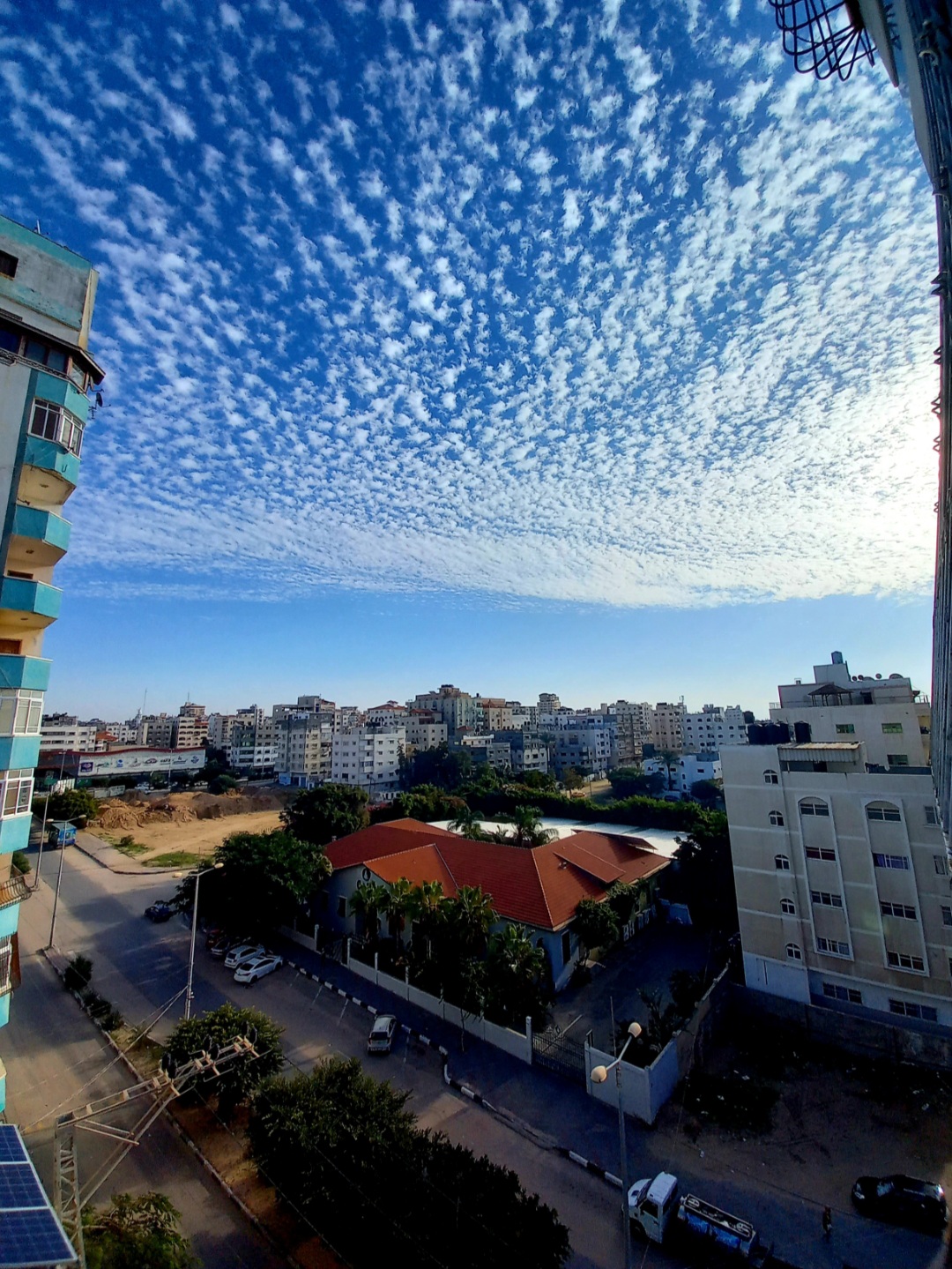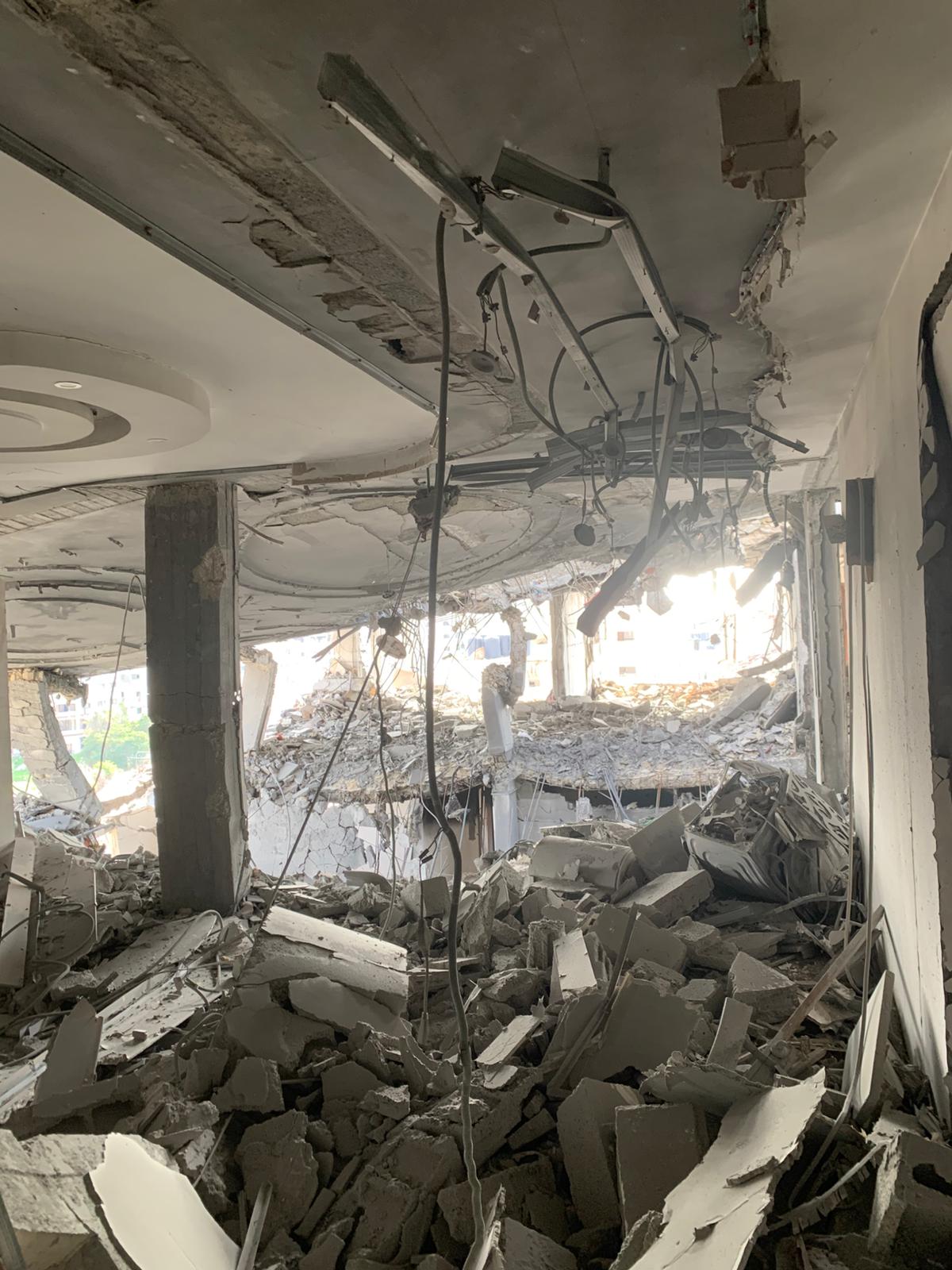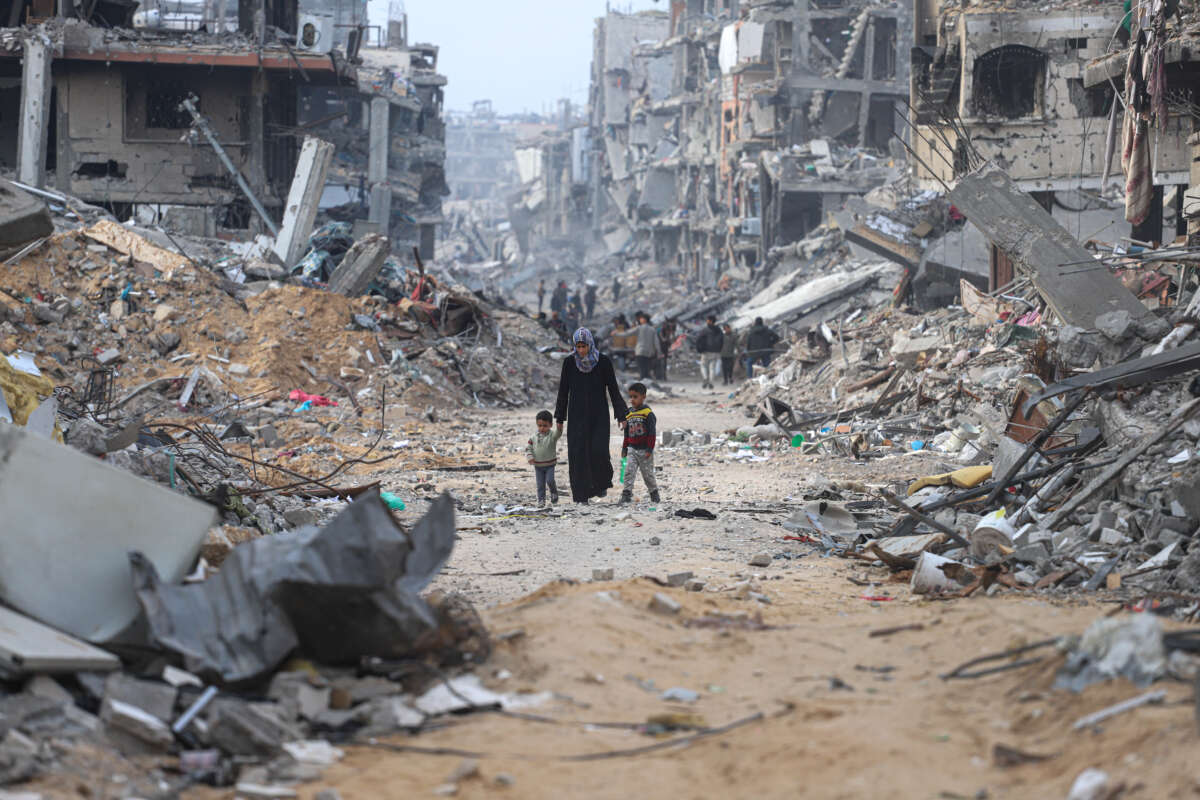Part of the Series
Struggle and Solidarity: Writing Toward Palestinian Liberation
How can I forget the sorrowful sight of my grandmother’s last moments, as she died in front of me, deprived of the treatment she needed and ravaged by the famine in northern Gaza? Her greatest joy was meant to be celebrating my graduation, a dream that was taken from us. My university was destroyed, and along with it, my dreams were reduced to ashes. How can I forget the moment when the home my father built through years of hard work and sacrifice was obliterated in seconds?
In the war’s third week, I found myself in my grandmother’s home in northern Gaza, in Al-Rimal. Yet, even there, the illusion of safety dissolved. After evacuating south under the occupation’s false assurances of safety, we were forced back to the north, where danger awaited us again.
At the start of this torment, we were forced to leave northern Gaza for the south, deceived by hollow promises of safety. We fled not out of hope but fear, knowing death loomed everywhere.
In Khan Younis, the so-called “safe place,” we prayed for peace. But as I prayed with my sister Farah, a bomb hit the neighboring house. The impact shook the ground, plunging us into darkness. I froze, terror consuming me as I stumbled to find my family. Farah’s flashlight revealed rubble and silence — a silence so heavy it felt like loss. Then, faintly, I heard coughing. My father, my little brother Zaid and my mother were alive. Relief washed over me, but Mohammed’s voice was absent. Frantic, Farah and I searched until we found him — lying motionless in a pool of blood. His pale face shattered my soul. He was unconscious, his head bleeding, but alive. My mother’s cries pierced the air, and Zaid’s screams of despair echoed around us. Paramedics rushed Mohammed to the hospital, and my father went with him. That night, I couldn’t sleep. The next day, we were informed Mohammed had a skull fracture. There was no cure but time — and hope. The nightmare had already followed us.
Ten days later, we returned north to our home, clinging to the hope that we might find it standing amidst the chaos. The journey was perilous, the road strewn with wreckage and the remains of lives lost to the war. Each step was heavy with dread, but nothing could prepare us for what we saw upon arrival.
Our home was gone — completely destroyed, reduced to a pile of rubble and ash. When we arrived, we stood frozen in disbelief and overwhelming sorrow, staring at what was once our sanctuary. The walls that once held our memories, the rooms that echoed with laughter, and the place that gave us comfort and safety had all vanished. Everything around us was in ruins — the neighborhood that had once been vibrant with life, bustling with families and the sounds of children playing, had become a lifeless ghost town. The streets that used to be filled with laughter and movement were now eerily silent, lined with crumbled buildings and shattered lives.

When I looked at all of this, I remembered a song I once listened to, whose haunting lyrics terrified me. I never imagined that one day, I would live through it: “Nothing goes as planned, everything breaks, and people say goodbye in their own special way.”
But we had no time to mourn! We rushed to flee to my grandmother’s house in Al-Rimal, with the fear of death hanging over us every moment. The air was filled with the deafening roar of warplanes, and the constant bombardment shook the ground beneath us. We had no choice but to brace for the worst at any second.
Finally, we arrived. I saw my beloved grandmother, Fekar Al Qishawi — her eyes filled with terror, yet relief washed over her face when she saw us. But when she laid eyes on Mohammed, her scream of shock pierced the air. During our first displacement, we couldn’t tell her about the tragedy that struck us when the war began. We feared the weight of the truth would break her already delicate health. Now, the reality we tried to shield her from became unavoidable. I will never forget how I felt when she learnt what had happened to us.

For 11 harrowing months, we lived with my grandmother as she battled the relentless effects of her neurological condition. Her illness demanded powerful medication, which, as the doctor warned, must be taken after a proper meal, saying: “She needs to eat well before taking this medication, or her health will worsen due to its potency.”
But how could she manage that when we had no flour to make bread, no meat, no vegetables and no fruit? Hunger became a cruel companion, stripping her body of any remaining strength. The famine slowly devoured my grandmother, leaving her too weak to even move. And when the occupation forces tightened their grip during the first siege, cutting off all access to medicine and food, she had no choice but to stop her treatment entirely. It was as though the occupation had declared war on her body, stealing not just her health, but her very will to fight.

My grandmother always called me Dalia, her voice carrying warmth and familiarity. But as her health worsened, she began looking at me with a sorrowful, distant gaze, unable to remember my name. Each passing day stole more of her memory, leaving her trapped in confusion and unable to express even her simplest desires — a heartbreaking decline that I felt powerless to stop.
On July 21, my grandmother passed away — right before my eyes. She endured 10 long months of war, pain and relentless fear. She left this world without ever remembering my name again and without celebrating my graduation as she had dreamed. The war isn’t over yet, but it already took her from me — it claimed her life, leaving a void that will never be filled.
Our most important fundraising appeal of the year
December is the most critical time of year for Truthout, because our nonprofit news is funded almost entirely by individual donations from readers like you. So before you navigate away, we ask that you take just a second to support Truthout with a tax-deductible donation.
This year is a little different. We are up against a far-reaching, wide-scale attack on press freedom coming from the Trump administration. 2025 was a year of frightening censorship, news industry corporate consolidation, and worsening financial conditions for progressive nonprofits across the board.
We can only resist Trump’s agenda by cultivating a strong base of support. The right-wing mediasphere is funded comfortably by billionaire owners and venture capitalist philanthropists. At Truthout, we have you.
We’ve set an ambitious target for our year-end campaign — a goal of $180,000 to keep up our fight against authoritarianism in 2026. Please take a meaningful action in this fight: make a one-time or monthly donation to Truthout before December 31. If you have the means, please dig deep.
